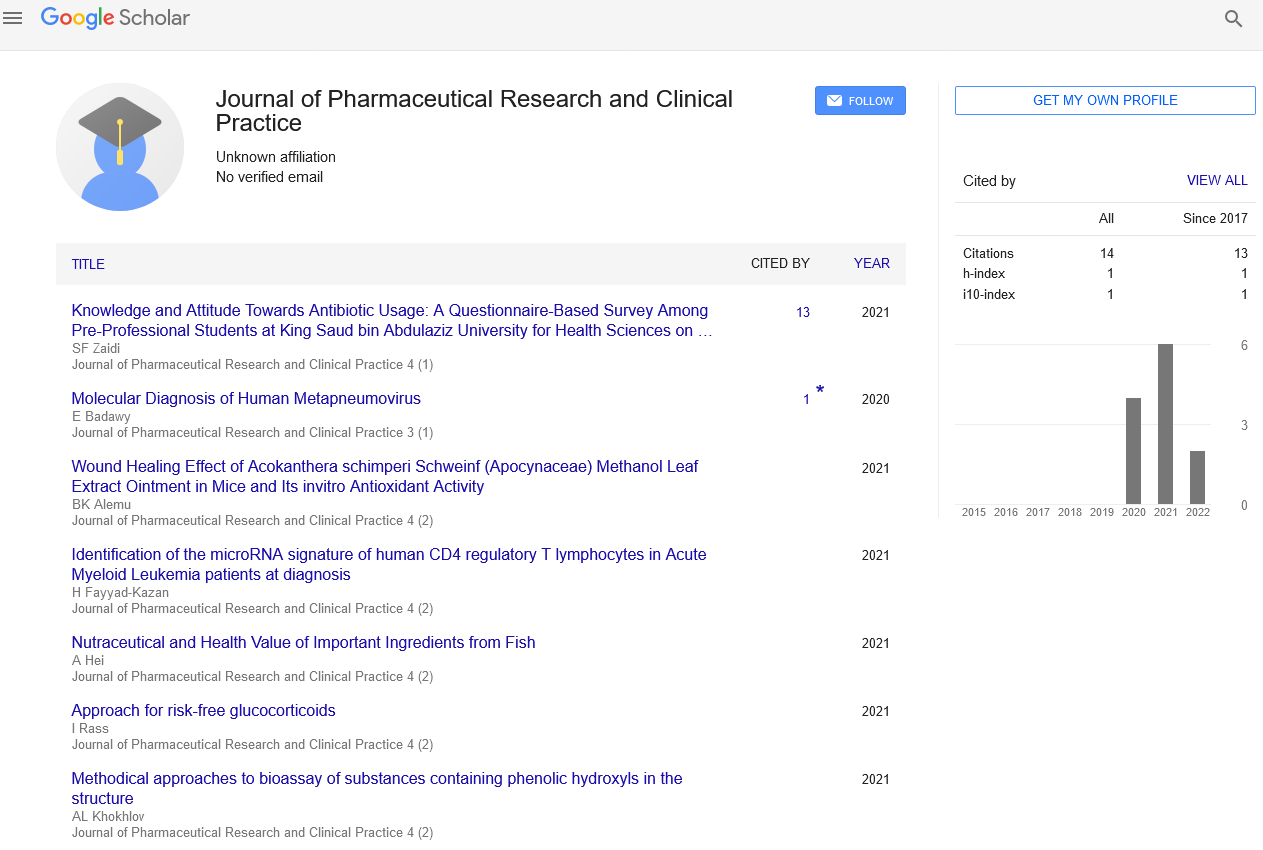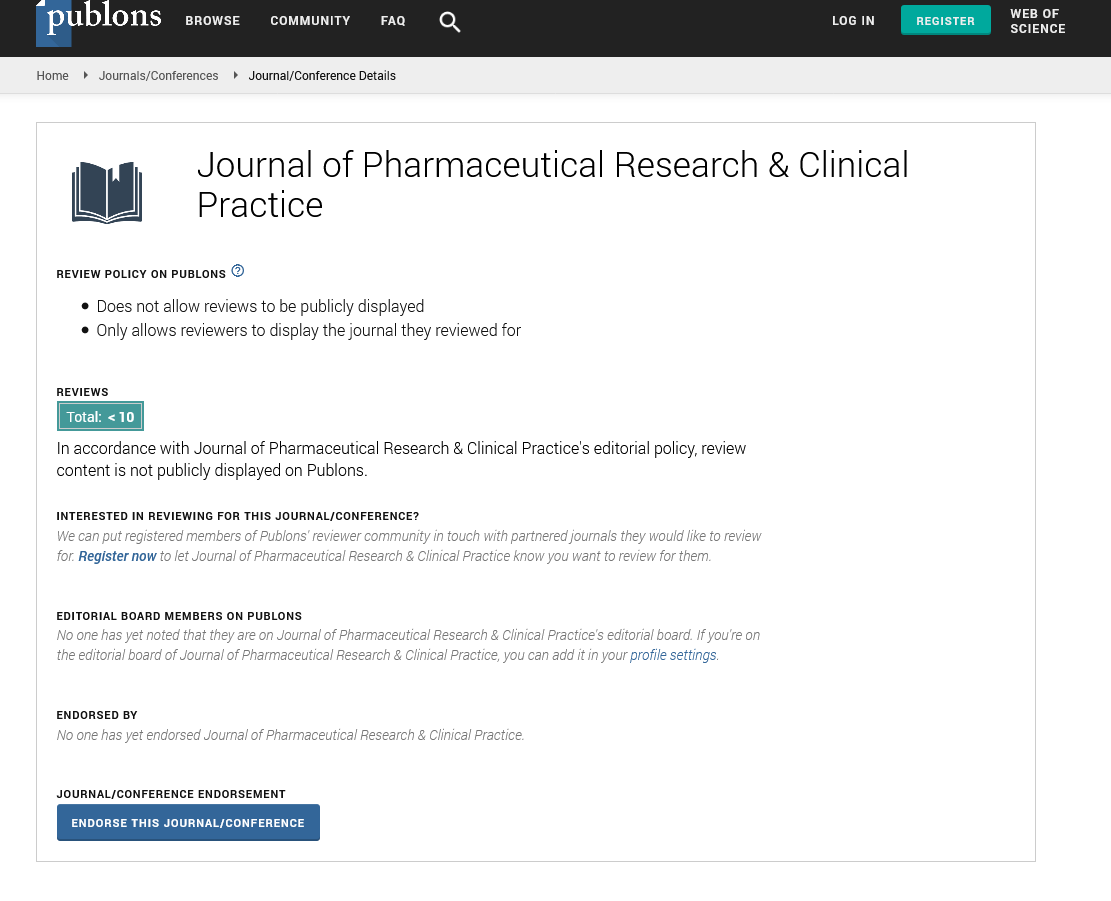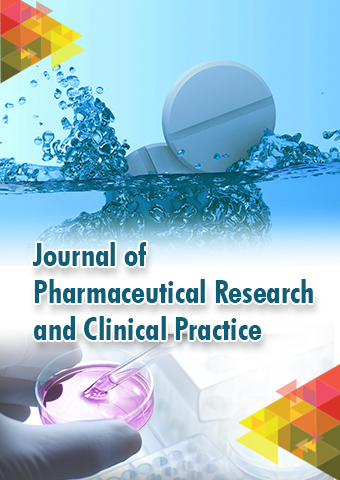Editorial - Journal of Pharmaceutical Research and Clinical Practice (2021) Volume 4, Issue 3
Anti-coagulants and their advantages
- Corresponding Author:
- Stephen McHugh, Department of Neurology, University of Pittsburgh Medical Centre, Pittsburgh, E-mail: stephenmchugh@yahoo.com
Abstract
Introduction
Anti-Coagulants are a group of drugs that inhibit blood clotting and help prevent blood clots from forming. Blood thinners can be used in a number of conditions where there is an increased risk of blood clots. Common blood thinning medications include:
• Coumadin
• Lovenox
• Heparin
There are important pharmacological and dietary considerations that must be followed when taking an anticoagulant drug. Be sure to discuss any new medications or diet changes with your doctor before making the change.
Herbs and vitamins can interact with blood thinning medications. Fish oil can increase the INR value. Your INR may need to be verified if these changes are made. Herbs can easily interact with your medications and can be harmful if taken together. Herbs can also be harmful to certain health conditions or medical procedures. When you see your doctor, tell him what herbs you are using. In summary, there are medications, foods, herbs, and vitamins that can interact with blood-thinning medications. Anti-Coagulants are also called as Blood thinners.
Why anti-coagulants are used?
If any blood clot blocks the flow of blood in the blood vessel, the part connected to that blood vessel will be in lack of oxygen and blood supply, so that the organ will not work properly. This leads to following problems:
• Strokes or transient ischaemic attacks
• Heart attacks
• Deep vein thrombosis
• Pulmonary embolism
Anticoagulant treatment may be recommended if your doctor thinks you are at increased risk of developing any of these problems. This may be because you have had blood clots in the past or have been diagnosed with a condition such as atrial fibrillation, which can lead to blood clots. You may also be prescribed a blood thinner if you have recently had an operation, as the rest and downtime you need during your recovery can increase your risk of developing a blood clot.
Precautions taken while using anticoagulants
There are precautions taken while using Anticoagulant drugs. They are:
1. While going for a surgery or before going for a test like endoscopy, the doctor or surgeon should know that the patient is using anticoagulants, as the patient should stop using those for short time.
2. While anticoagulants where taken with any other drugs the mechanism action will be effected. So we should take the suggestion from a pharmacist regarding the usage of other drugs along with Anticoagulants.
3. If Anticoagulants like warfarin are taken, the patient should change his food habits as the food habits also affects the action of the drug.
4. As anticoagulants reduce the blood’s clotting ability, there is a risk of excessive bleeding if cuts or injuries are made during a surgery.
Dose to be Taken
For most people, the anticoagulant tablets or capsules should be taken at the same time once or twice a day. It is important that you take your medicine as planned, as some blood thinners can wear off in a day.
• Warfarin should be taken with water.
• Edoxaban can be taken with food
• Rivaroxaban is normally taken with food.


